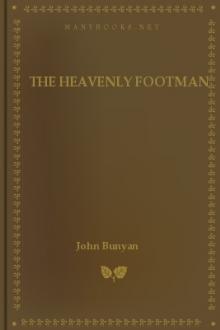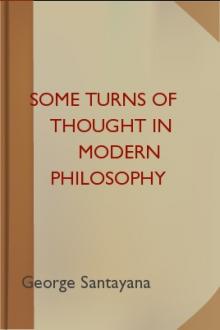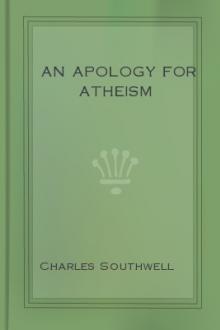Genre Philosophy. Page - 4

ntoprison and even voted for their being put to death. I became soexceedingly mad against them that I even pursued them to foreigncities.
"Then as I was journeying[6] to Damascus, with the authority of thechief priests themselves, at mid-day I saw on the way a light from thesky, brighter than the blaze of the sun, shining round about me and mycompanions. And, as we were all fallen on to the road, I heard a voicesaying to me:
"'Saul, Saul, why do you persecute me? It is hard for you to kickagainst the goad.'
"And I said, 'Who are you, Lord?'
"The answer came: 'I am Jesus, whom you persecute.'"
Then Paul went on:
"I was not disobedient to the heavenly vision; but I told those inDamascus and in Jerusalem and in all Judæa, aye! and the foreignnations also, that they should repent and turn to God.
"Later on," said Paul, "I fell into a trance, and Jesus came againto me and said, 'Go, I will send you afar to the Nations.' That (Paulwould say to Luke) is why I walk among perils in the

h it may be known: it is One; it is Holy; it is Catholic; it is Apostolic.
133. Q. In which Church are these marks found? A. These marks are found in the Holy Roman Catholic Church alone.
LESSON ELEVENTH ON THE SACRAMENTS IN GENERAL
136. Q. What is a Sacrament? A. A Sacrament is an outward sign instituted by Christ to give grace.
137. Q. How many Sacraments are there? A. There are seven Sacraments: Baptism, Confirmation, Holy Eucharist, Penance, Extreme Unction, Holy Orders, and Matrimony.
138. Q. Whence have the Sacraments the power of giving grace? A. The Sacraments have the power of giving grace from the merits of Jesus Christ.
147. Q. Do the Sacraments always give grace? A. The Sacraments always give grace, if we receive them with the right dispositions.
148. Q. Can we receive the Sacraments more than once? A. We can receive the Sacraments more than once, except Baptism, Confirmation, and Holy Orders.
LESSON TWELFTH ON BAPTISM
152. Q

perhaps, but littleenlightening, for they can have little bearing upon our conception ofwhat we ought to do.
A presumption against this arbitrary assumption that we have the one andonly desirable code is suggested the unthinking acceptance of thetraditional by those who are lacking in enlightenment and in the capacityreflection. Is it not significant that a contact with new ways ofthinking has a tendency, at least, to make men broaden their horizon andto revise some of their views?
In other fields, we hope to attain to a capacity for self-criticism. Weexpect to learn from other men. Why should we, in the sphere of morals,lay claim to the possession of the truth, the whole truth, and nothingbut the truth? Why should we refuse to learn from anyone? Such a positionseems unreasoning. It puts moral judgments beyond the pale of argumentand intelligent discussion. It is an assumption of infallibility littlein harmony with the spirit of science. The fact that a given standard ofconduct is in harmo

e the way is long, (I speak metaphorically,) and there is many a dirty step, many a high hill, much work to do; a wicked heart, world, and devil to overcome. I say there are many steps to be taken by those that intend to be saved, by running, or walking, in the steps of that faith of our father Abraham. Out of Egypt thou must go through the Red Sea; thou must run a long and tedious journey, through the vast howling wilderness, before thou come to the land of promise.
4. They that will go to heaven must run for it; because, as the way is so long, so _the time in which they are to get to the end of it is very uncertain_. The time present is the only time; thou hast no more time allotted thee than that thou now enjoyest. "Boast not thyself of to-morrow, for thou knowest not what a day may bring forth." Do not say, 'I have time enough to get to heaven seven years hence;' for I tell thee, the bell may toll for thee, before seven days more be ended. When death comes, away thou must go, whether thou

nce in a good sense or a bad. We interpret it by our antecedent impressions.
The very same sentiments, according as our jealousy is or is not awake, or our aversion stimulated, are tokens of truth or of dissimulation and pretence. There is a story of a sane person being by mistake shut up in the wards of a Lunatic Asylum, and that, when he pleaded his cause to some strangers visiting the establishment, the only remark he elicited in answer was, "How naturally he talks! you would think he was in his senses." Controversies should be decided by the reason; is it legitimate warfare to appeal to the misgivings of the public mind and to its dislikings? Any how, if my accuser is able thus to practise upon my readers, the more I succeed, the less will be my success. If I am natural, he will tell them "Ars est celare artem;" if I am convincing, he will suggest that I am an able logician; if I show warmth, I am acting the indignant innocent; if I am calm, I am thereby detected as a smooth hypocrite; if I clear u

remember well the magic of that first romantic glance across acrowded ballroom, the guileless smile and downcast eyes thatinstantaneously made my heart skip a beat. I remember the soulstirring melody of Band of Gold and the lingering smell of peachesand the gentle winds against my ears on a pleasant summer night.Sequential Problem Solving is about memories and dreams, making themcome true, and keeping them alive.
Sequential Problem Solving is about becoming both a success and alifelong-learner. Problem solving has two aspects: physical problemsin a scientific environment and personal problems in a spiritual innerworld. This book uses well known classical literary selections asmodels for personal decision making and character development. Theseworks were chosen primarily due to their ready availability.
Part of the fun of sequential problem solving is mentally rewritingstories to have more favorable outcomes. We imagine favorableoutcomes naturally, but successful people do so in a

lly grow up.Filial piety and fraternal submission!-- are they not the root ofall benevolent actions?'CHAP. III. The Master said, 'Fine words and aninsinuating appearance are seldom associated with true virtue.'CHAP. IV. The philosopher Tsang said, 'I daily examinemyself on three points:-- whether, in transacting business forothers, I may have been not faithful;-- whether, in intercoursewith friends, I may have been not sincere;-- whether I mayhave not mastered and practised the instructions of myteacher.'
¡i²Ä¤³¹¡j¤l¤ê¡B¹D¤d¼¤§°ê¡B·q¨Æ¦Ó«H¡B¸`¥Î¦Ó·R¤H¡B¨Ï¥Á¥H®É¡C¡i²Ä¤»³¹¡j¤l¤ê¡B§Ì¤l¡B¤J«h§µ¡B¥X«h§Ì¡BÂÔ¦Ó«H¡B¤Z·R²³¡B¦Ó¿Ë¤¯¡B¦æ¦³¾l¤O¡B«h¥H¾Ç¤å¡C¡i²Ä¤C³¹¡j¤l®L¤ê¡B½å½å©ö¦â¡B¨Æ¤÷¥À¡B¯àºÜ¨ä¤O¡B¨Æ§g¡B¯àP¨ä¨¡BCHAP. V. The Master said, To rule a country of a thousandchariots, there must be reverent attention to business, andsincerity; economy in expenditure, and love for men; and theemployment of the people at the proper seasons.'CHAP. VI. The Master said, 'A youth, when at home

es sleep because it has a dormitive virtue. The virtues or moral uses of things, according to Socrates, were the reason why the things had been created and were what they were; the admirable virtues of opium defined its perfection, and the perfection of a thing was the full manifestation of its deepest nature. Doubtless this moral interpretation of the universe had been overdone, and it had been a capital error in Socrates to make that interpretation exclusive and to substitute it for natural philosophy. Locke, who was himself a medical man, knew what a black cloak for ignorance and villainy Scholastic verbiage might be in that profession. He also knew, being an enthusiast for experimental science, that in order to control the movement of matter--which is to realise those virtues and perfections--it is better to trace the movement of matter materialistically; for it is in the act of manifesting its own powers, and not, as Socrates and the Scholastics fancied, by obeying a foreign magic, that matter sometimes

s of derision, although his majestic face and dignified manner were only calculated to excite admiration. As the shouts of laughter and yells of derision came down to his ears he raised his head and uttered a few words.
"Who is he?" asked Marcellus.
"Alexander, a teacher of the abominable Christian sect. He is so obstinate that he will not recant--"
"Hush, he is speaking."
"Romans!" said the old man, "I am a Christian. My God died for me, and I gladly lay down my life for him--"
A loud outburst of yells and execrations from the fierce mob drowned his voice. Before it was over three panthers came bounding toward him. He folded his arms, and looking up to heaven, his lips moved as if murmuring prayers. The savage beasts fell upon him as he stood, and in a few minutes he was torn in pieces.
Other wild animals were now let in. They bounded around the inclosure, they leaped against the barrier, and in their rage assailed one another. It was a hideous scene.
Into the

rights, or, what is equal, that' knowledge which would infallibly secure them. The Methodist preacher, who has the foolish effrontery to tell his congregation 'the flesh lusteth always contrary to the spirit; and, therefore, every person born into the world deserveth God's wrath and damnation,' may be a liberal politician, one well fitted to pilot his flock into the haven of true republicanism: but the author is extremely suspicious of such persons, and would not on any account place his liberty in their keeping. He has little faith in political fanaticism, especially when in alliance with the frightful doctrines enunciated from conventicle pulpits, and has no hesitation in saying that Anti-State Church Associations do not touch the root of all political evils. Their usefulness is great, because they give currency to a sound principle, but that principle, though important, is not all-important--though powerful, is not all-powerful. If universally adopted, it is questionable that any useful change of a lasting